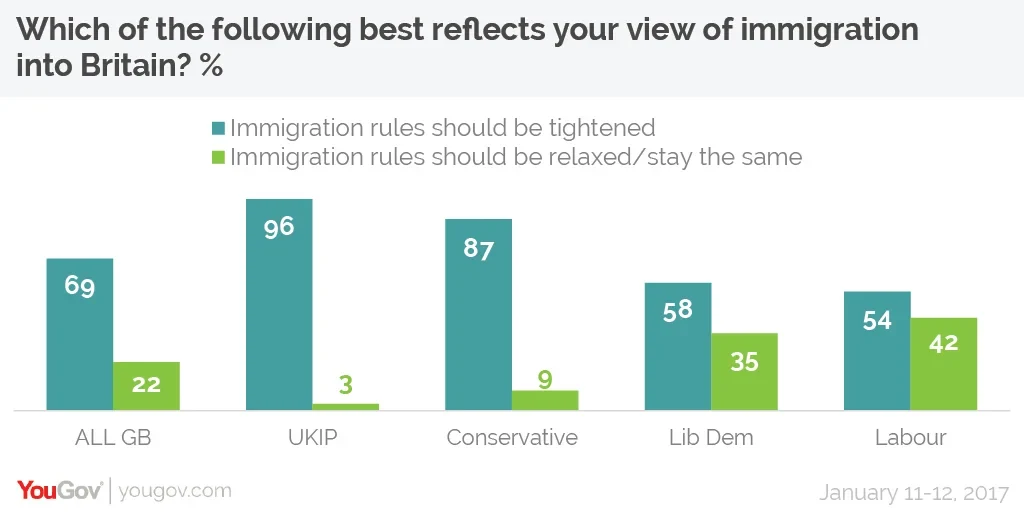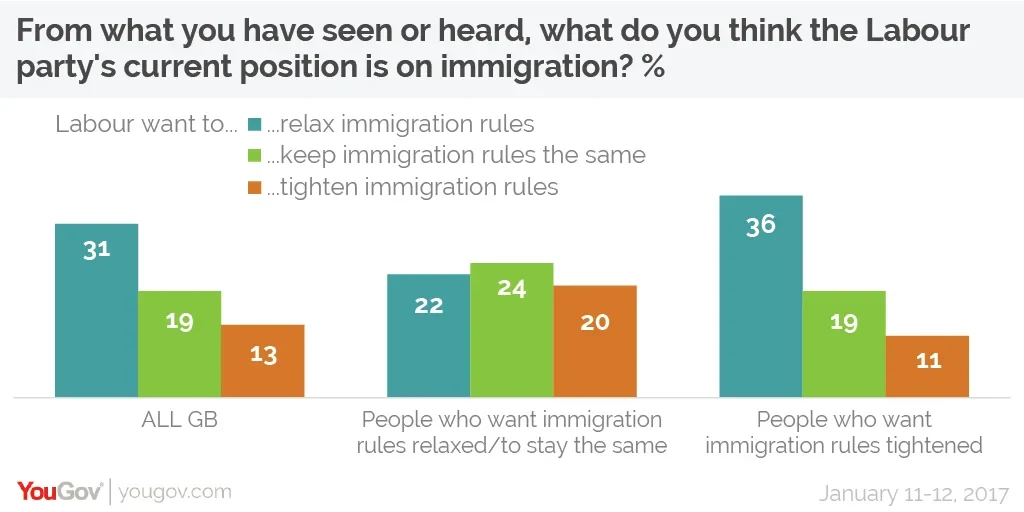New YouGov research shows there is a big risk of Labour alienating voters with their new compromise immigration policy
On Tuesday, after some confusion, Jeremy Corbyn used a set piece speech to set Labour’s new position on immigration, stating that "Labour is not wedded to freedom of movement, but I don’t want that to be misinterpreted, nor do we rule it out".
Labour’s immigration problems have been widely discussed as they try to hold together a coalition of metropolitan pro-immigration Remain voters and their more traditional anti-immigration Leave voting base. In our most recent issues trackers, immigration is regularly seen as one of the most important issues alongside Brexit and the economy.
Whilst Conservative voters, UKIP voters, and the country as a whole overwhelmingly want immigration policy tightened there is a much more diverse set of opinion inside Labour’s coalition of voters. Among those that voted Labour at the last election, 54% want immigration policy tightened while 42% want immigration policy relaxed or to stay about the same.
As long as immigration continues to be a dominant political issue, keeping hold of these voters will remain a key challenge for the Labour leader. This is especially true with the party being squeezed by UKIP/Conservatives on the right and the Lib Dems/Greens on the left.

Jeremy Corbyn’s positioning on Tuesday seem to be an attempt to have a policy that satisfies everyone. However, the risk with trying to be all things to all people is that you can end up being nothing to anyone. After his speech, we polled voters not just on their own views on immigration but also what they think Labour’s position is.
So far, the party seems to be failing to convince people that it agrees with them on this key issue. Among those who want immigration rules to be tightened, just 11% think Labour agrees with them and over half think the party wants immigration policy either to remain the same (19%) or be relaxed (36%).

Amongst those who themselves want immigration policy to remain the same or be relaxed, there is wide confusion over what Labour’s actual policy is. Around a fifth (22%) think the party wants a more relaxed policy, while similar numbers think it wants immigration policy to remain the same (24%) or tightened (20%).
So, generally speaking, an anti-immigration voter is more likely to think Labour has a pro-immigration policy and visa-versa. Perhaps more worrying for Labour, over a third of voters (38%) are not sure what the party’s policy is at all.
In the long term, the best case scenario for Labour is that immigration declines in importance or gets overtaken by issues where their voter coalition are in agreement – such as housing or health. In the short term, though, the internal tension within the party’s coalition about immigration is probably a key driver behind Labour’s struggling poll numbers and its new compromise position could risk alienating voters further.
Photo: PA








